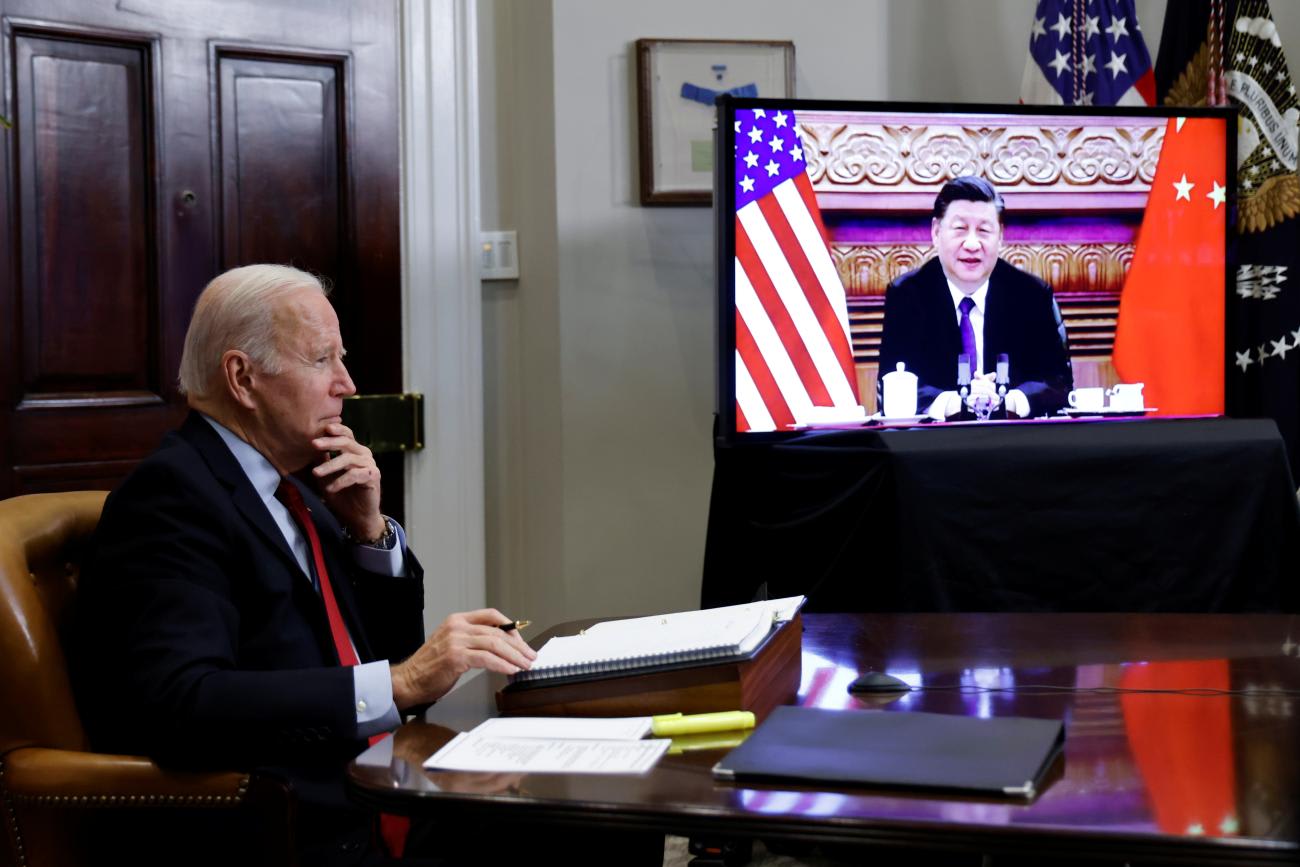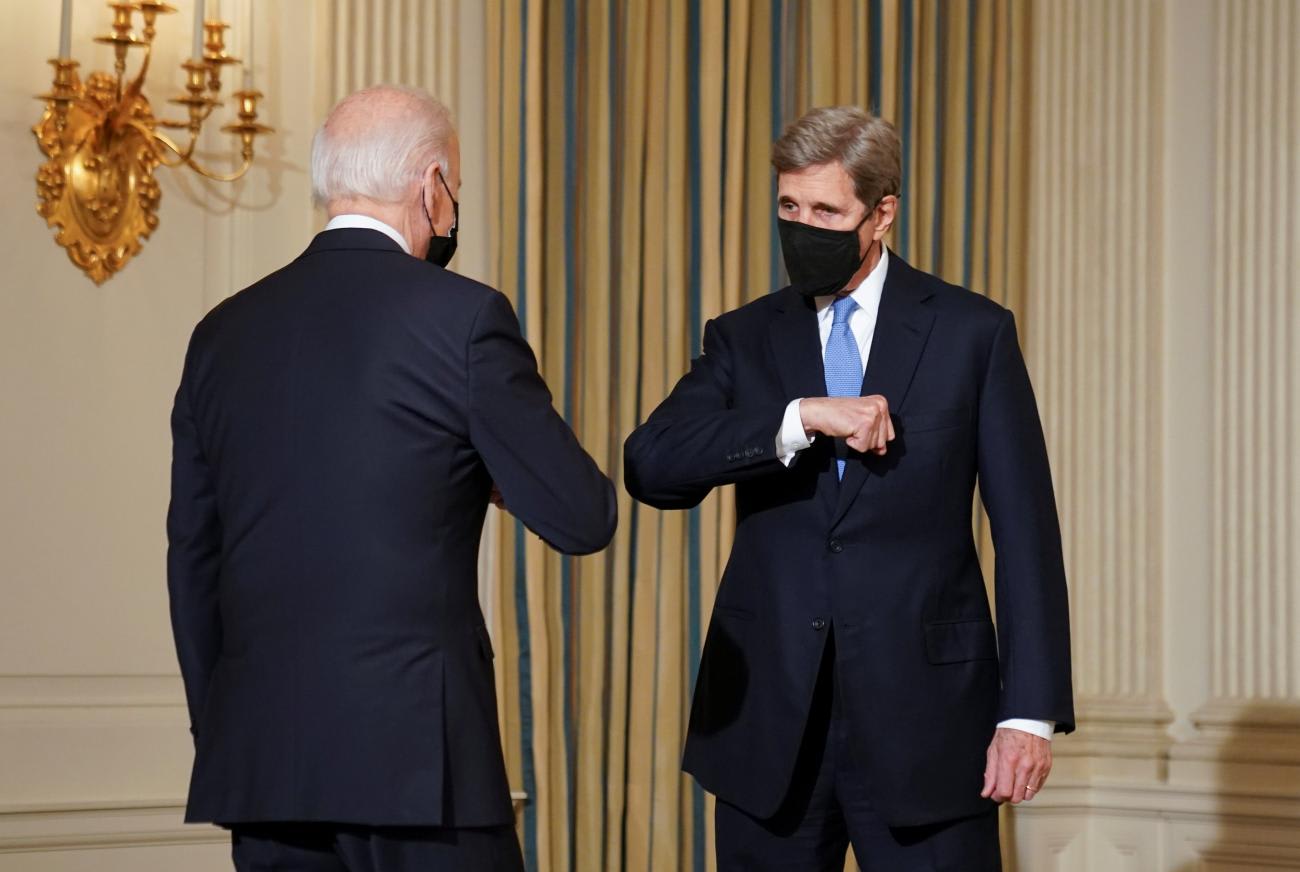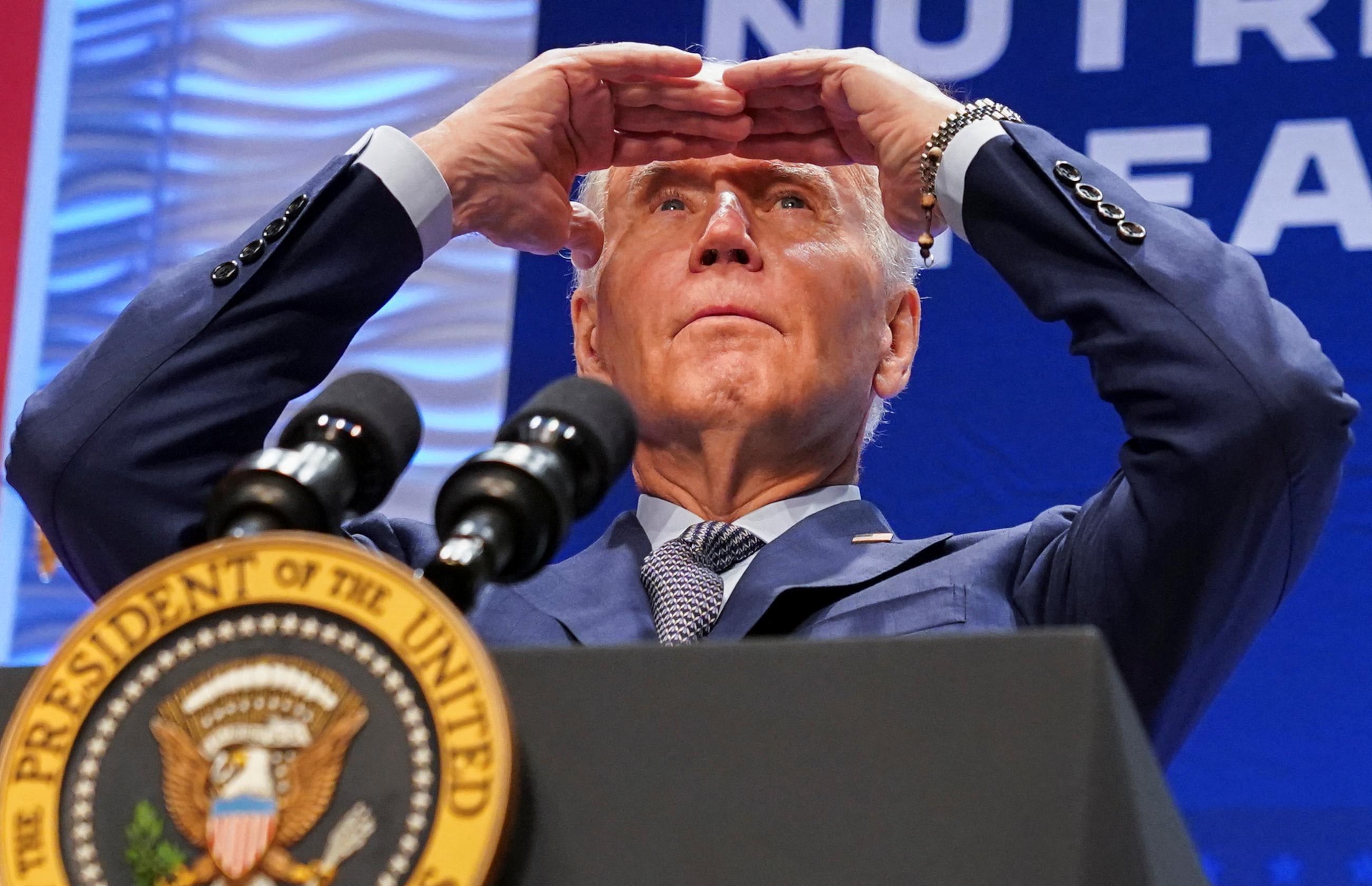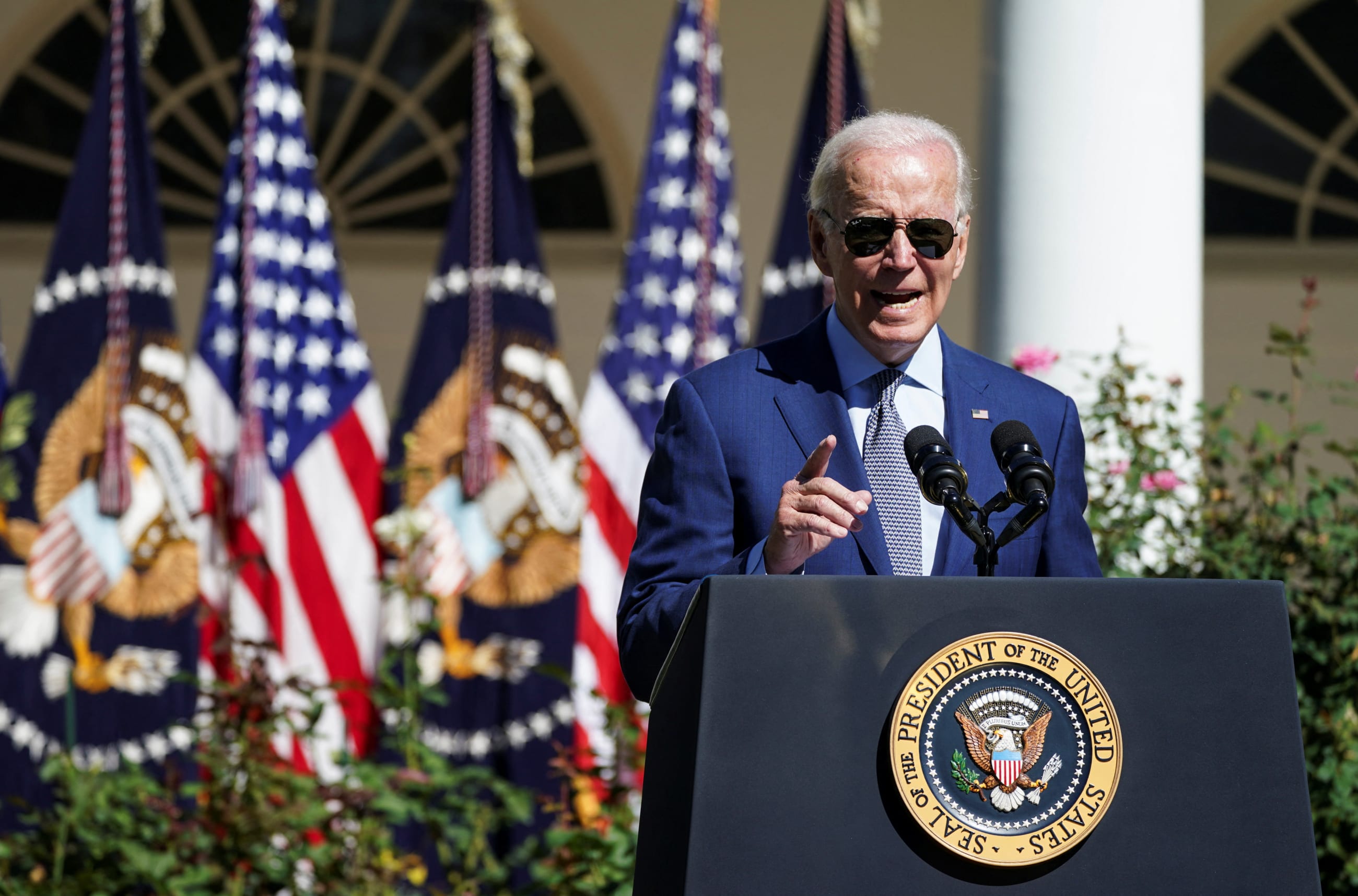The end of Joe Biden's presidential reelection campaign has prompted assessments of his legacy. For example, Charles Kupchan, senior fellow and director of European studies at the Council on Foreign Relations, argued that Biden's accomplishments "navigating a fractured United States through a fractured world" depend on whether Vice President Kamala Harris, the presumptive Democratic nominee, wins in November and completes the Biden administration's "unfinished business" at home and abroad.
In 2021, Biden entered the White House amid the COVID-19 pandemic and sought to restore U.S. global health leadership. A case can be made that he did, but Biden's time in office has raised questions about what U.S. global health engagement means for a divided nation in a fragmented world. Biden's foreign policy on global health leaves unfinished business, but it also reflects how the administration, by necessity and choice, made global health less important in the business of U.S. foreign policy.
A Different America is Back
After taking office, Biden proclaimed that "America is back" to signal that the United States would again be a global leader. The slogan applied across U.S. foreign policy, but resonated in a world reeling from COVID-19 and former President Donald Trump's abdication of international leadership during the pandemic's first year. Biden's team formulated policies to end the pandemic and help countries recover from it.
When the United States did begin sharing, the Biden administration factored geopolitical considerations into how it made U.S. vaccines available
The pandemic, however, masked that global health was not a priority for the Democratic Party in preparing for the 2020 elections. After losing in 2016, Democrats began rethinking foreign policy to identify the strategic challenges facing the United States. Chief among them were growing Chinese and Russian influence and democracy's global decline. Democrats also acknowledged that U.S. foreign policy had failed American workers and in response developed a foreign policy for the middle class.
Biden promised to confront China and Russia, shore up democracy globally, and pursue a foreign policy for the middle class. Although understandable during a pandemic, his desire to restore U.S. global health leadership prompted skepticism that, without serious change, such leadership could help counter geopolitical threats or benefit U.S. workers.
After all, the United States was the unrivaled global health leader during the period when China and Russia challenged U.S. power, authoritarianism spread, and anger at internationalism became potent in U.S. politics. It did not help the case for restoration that decades of global health leadership before COVID-19 had not prepared the United States for a pandemic. The lack of readiness contributed to the staggering damage the country experienced. Under Biden, America might be back, but it has returned with strategic national interests for which past U.S. global health engagement is not fit for purpose.

Vaccine Nationalism and Vaccine Diplomacy
The pandemic triggered policymaking by the Biden administration, including on U.S. vaccines that became available in 2021. Among those policies, the decisions on sharing U.S. vaccines globally loom large in Biden's foreign policy legacy on global health.
Like other high-income nations, the U.S. government did not share vaccines until it had enough supplies for its own population. When the United States did begin sharing, the Biden administration factored geopolitical considerations into how it made U.S. vaccines available. Such vaccine nationalism and vaccine diplomacy angered global health leaders and low-income countries deprived of timely, equitable access to life-saving countermeasures.
Those policies, and criticism of them, inform Biden's legacy. U.S. vaccine nationalism revealed the constraints at home that an administration promising a foreign policy for the middle class faced from a population traumatized, and made more polarized, by the pandemic. U.S. vaccine diplomacy exposed the powerful pull of geopolitics—also seen in how China and Russia shared their vaccines. Even for a president seeking global health leadership, domestic and geopolitical calculations prevailed over pleas for solidarity and equity amid a global health crisis.
Pandemic Preparedness, Governance, and Diplomacy
COVID-19 has shaped Biden's foreign policy legacy on global health in other ways. He has tried to improve pandemic preparedness and response capabilities. His administration helped create the Pandemic Fund, backed amendments to the International Health Regulations, and has participated in the negotiations for a pandemic agreement. It has supported initiatives to diversify the distribution of vaccine manufacturing, including in Africa. Those and other activities do not mean that the United States and other countries agree on all issues, but they show Biden's commitment to bolstering collective action on pandemic preparedness and response.
Biden's attempts to reestablish U.S. global health leadership have been consequential but not transformative
Within the U.S. government, Biden's team implemented the congressional mandate for a White House office on pandemic preparedness and response and developed a national biodefense strategy. The Department of State overhauled how it addresses global health by establishing the Bureau of Global Health Security and Diplomacy and crafting a U.S. Global Health Security Strategy. The administration began formulating industrial policy to improve U.S. health security by, for example, making supply chains for health products more secure. The fruits of those labors will take years to ripen, but Biden has sought to improve how the United States manages pathogenic threats to national and global health security.
Climate Change and Health
During Biden's presidency, the health dangers of climate change became manifest. Biden has confronted that threat at home and abroad. He recommitted the United States to the Paris Agreement, pursued bilateral climate diplomacy with China, and secured passage of the most ambitious U.S. climate legislation ever adopted. Much of that legislation seeks to reduce domestic greenhouse gas emissions and make the United States a green-economy leader at a critical moment in global efforts to avoid long-term climate disaster. His administration also developed the first U.S. strategy for helping other countries with climate adaptation—the President's Emergency Plan for Adaptation and Resilience (PREPARE).
Biden's actions, however, do not constitute a crystalline legacy on climate and health. The scale and speed of global warming have surprised climate scientists, suggesting that even ambitious mitigation efforts are too little and too late to prevent widespread, long-lasting damage from climate change. In response to domestic political fears about high energy prices and geopolitical worries about energy security, U.S. fossil-fuel production reached historic levels during Biden's presidency. His administration made progress increasing U.S. climate adaptation funding, bringing the $3 billion annually promised under PREPARE within reach. But it has not championed the loss and damage fund established in UN climate negotiations to provide resources for developing countries.

PEPFAR's Predicament
Biden inherited the responsibility for continuing foreign policy accomplishments in global health, including the President's Emergency Plan for AIDS Relief (PEPFAR). After it was established in 2003, PEPFAR had bipartisan backing, and Congress reauthorized it for five-year periods since 2008. The Biden administration sought another five-year extension in 2023, but, after anti-abortion criticism of the administration's implementation of PEPFAR, Congress reauthorized it in 2024 for only one year. The controversy further illustrates the impact that polarized domestic politics has had on foreign policy on global health during Biden's presidency.
In addition, the controversy prompted analysis that identified other problems that made PEPFAR vulnerable. For example, Emily Bass has argued that, prior to the abortion dispute, a "largely Democratic cadre of development practitioners had spent nearly 15 years arguing that PEPFAR was housed in the wrong U.S. government agency and that the HIV focus was so vertical and costly that it verged on the unethical." She asserted that the Biden administration's "embrace of PEPFAR solely as an HIV program and an example of American compassion has dismayed some public health and foreign policy experts" because that approach failed to emphasize PEPFAR's value in building stronger U.S. global health security after COVID-19.
Biotech and Biosecurity
U.S. foreign policy on global health has long addressed concerns that biotechnology advances could facilitate serious disease events through accidents or malign intent. The Biden administration has also grappled with that problem. The controversy over COVID-19's origins includes accusations that the coronavirus escaped from a Chinese lab that had received U.S. funding. The origins debate has roiled U.S. politics on COVID-19, China, and pathogen research—and made bipartisanship on strengthening pandemic defenses more difficult. The Biden administration also had to confront Chinese disinformation claiming that the COVID-19 virus originated at a U.S. lab and Russian information operations asserting that the United States operates bioweapon facilities in foreign countries.
Beyond COVID-19, Biden embraced the revolution in biotechnologies and the need to ensure that biotech innovations do not make pathogenic crises more likely. His administration believes that biotech advances can contribute to pandemic readiness, help with climate mitigation and adaptation, and create geopolitical advantages. To minimize the likelihood that biotech progress seeds biosecurity threats, it adopted new rules on research with dangerous pathogens.
Troubled Bridge Over Tumultuous Waters
Biden's attempts to reestablish U.S. global health leadership have been consequential but not transformative. The task was a heavy lift. Biden's team had to overcome the damage that the Trump administration inflicted. In addition, the paramount global health crises that Biden has faced—COVID-19 and climate change—exposed that past U.S. leadership did not prioritize the pandemic threat, address global warming adequately, protect Americans from pathogenic and climate change dangers, or provide advantages when rival nations challenged U.S. power and influence.
Biden's efforts to rebuild and reorient U.S. policies, however, have been battered by geopolitical threats against which global health leadership is irrelevant and bruised by domestic political divisiveness exacerbated by COVID-19, climate change, and even PEPFAR. In a more dangerous world and divided nation, foreign policy on global health lacks strategic purpose and domestic commitment. In that context, global health gets sidelined in the ruthless triage of foreign policy and savaged in the partisan warfare of a polarized nation.
What Biden and his team constructed, however incomplete and compromised, could inform more work by the next administration to transform U.S. foreign policy on global health. The prospects for transformation, however, remain vulnerable to the same international and domestic political forces that have stymied Biden's ambitions, even if Vice President Harris occupies the White House in January 2025.













